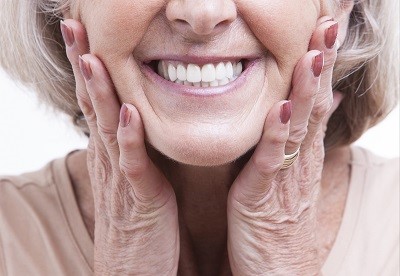 People can begin to age as soon as they reach their twenties, depending on how they have taken care of their bodies. Those who are sedentary, smoke, play rough sports, or regularly get sunburned can begin to find signs of obesity, poor teeth and skin, and degenerative changes in their joints at a very young age.
People can begin to age as soon as they reach their twenties, depending on how they have taken care of their bodies. Those who are sedentary, smoke, play rough sports, or regularly get sunburned can begin to find signs of obesity, poor teeth and skin, and degenerative changes in their joints at a very young age.
Aging is a continual process and, by the time a person reaches the age of 50-60, signs of aging are apparent in almost everyone.
Here are some signs of aging that are normal and expected, as one gets older:
Skin Changes
Skin tends to lose collagen as one ages. This increases the signs of wrinkles, and the skin begins to develop decreased turgor and an increase in red and brown spots, especially on sun-exposed areas.
Some of these changes of aging can be slowed by performing regular cleansing and moisturizing of the skin, staying out of the sun, using sunscreen when outdoors, and not smoking.
Those who have the healthiest skin in their older years are those who have cared for their skin from the very beginning. Wrinkles can be prevented far easier than they can be hidden once they develop.
Arthritis
Wear and tear on the joints, especially the hands, knees, ankles and hips, can increase pain in these areas and can result in visible changes, particularly in their hands. Joints are meant to be used but to be used gently so that those who participate in contact sports or do repetitive motion of their hands are more prone to these degenerative changes.
More than half of all people over the age of 65 have at least one or more joints affected by joint degeneration. While there exists pain medications and physical therapy to counteract some of the inflammatory and painful changes joints normally go through when aging, it is best to avoid overstressing the joints, even when you are young.
Osteoporosis
This is a part of aging that affects primarily women after menopause. Estrogen is protective to bone so that, when it is lost through menopause, an increase in bone loss can occur, leading to less dense bones and osteoporosis in some women.
The best way to prevent or delay this sign of aging is to keep your bones strong while you are young and continuing to get calcium and vitamin D in your diet as you get older.
Obesity
The rate of metabolism slows as one ages so, if you eat the same amount of calories with the same kinds of foods as you age when compared to when you were younger, you will find yourself gaining weight. As you age, you become more sedentary and this adds to the risk of gaining weight as you age.
Fortunately, the older you get, the less appetite you have so that, after a period of gaining weight in middle age, men and women both tend to naturally eat less so that some of that weight falls off.
It is important to remember that your metabolic rate decreases as you age so, if you find yourself packing on the pounds, cut down on your eating and increase your level of activity.
Obesity can lead to secondary changes in your health, such as an increase in the risk of diabetes, heart disease and certain cancers.
Decrease in Hearing, Taste, and Vision
Many body senses, including the sense of hearing, vision, and taste tend to diminish with age. You will have a lesser sense of smell so that foods don’t taste as rich as they did when you were younger and your vision can become clouded with cataracts as a part of the aging process. The lens of the eye becomes less flexible as you age so that reading books and things up close can be difficult.
If you were exposed to excess noise as a younger person, you will be at a greater risk of having sensorineural hearing loss when you get older. Protect your eyes from the sun and your ears from loud noises and you will have longer use of these senses as you get older.
Keep in mind that not all of the above will occur in everyone, there are people in their 60s and 70s that are in optimal health and are strong, virile, energetic and disease free. Typically, these people took great care in making healthy lifestyle choices, like diet and exercise along with preventative medical care.
Of course, it’s never too late to start on the road to good health, evaluate your habits, and make appropriate changes to ensure the healthiest senior years possible.
Exercise every day, eat whole food and stay within appropriate calorie limits, quit smoking and excessive drinking, find things in life that bring you joy and fulfilling relationships, and see your doctor to evaluate your overall health.





